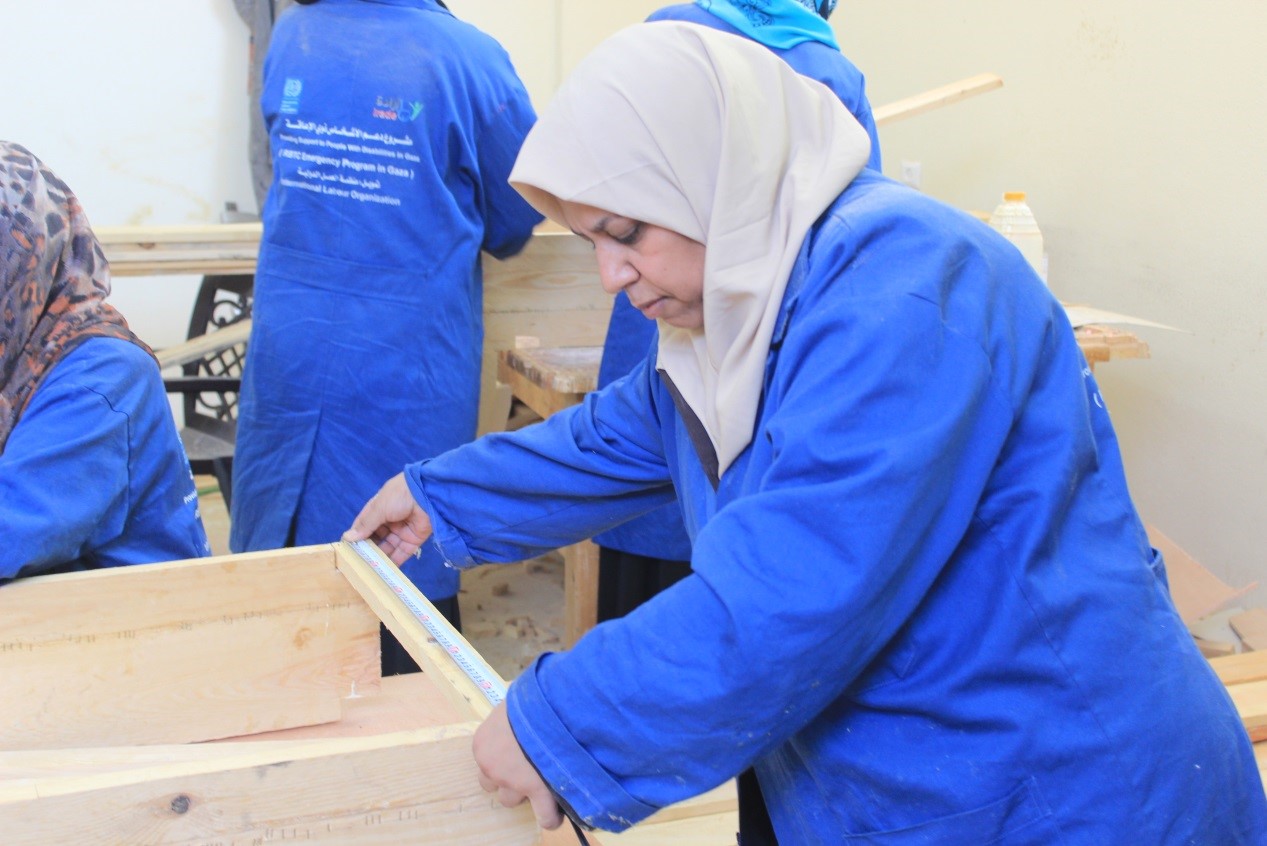
Gaza city — When I went to Irada program, I met a person who made me hopeful and encouraged me to be different in spite of my poor health and lack of experience. Will, however, was the only requirement of success. My story started when I met Majeda Murad, a woman from an upholstery training workshop in Irada program. Majeda is suffering from a physical disability in her knees. Despite her disability and the difficulty of her training profession, she insists on going on in this vocational route while challenging her age, 45 years. She joins 16 other trainees in her training workshops, and 6 of these are females with disabilities.
“Regardless of the toughness of the profession, we can recognize our success as females in a profession typically for men. This success comes counter to the expectations of our disabilities,” Majeda says. “Also, I wish after the end of the training session to open a small workshop in order to provide a steady income source for me and my sisters”.
Majeda got her diploma certificate from the Palestinian Institute of Divinity, and she worked for 15 years in the educational field as a nanny in the kindergarten. One day, she fell on her knees and her injury was so terrible that it affected her movement ability. After staying home for a year and a half, she agreed to travel to have a surgery to replace her impaired knees joints in 2009, and she did it. Later on, her health state did not allow her to continue to teach.
Then, she involved herself in disabilities care centers where she received three years of continuous training. Later, she joined Irada program and chose the upholstery profession. Her choice was based on her dream about which she says, “my sisters and I dreamed to have a sofa set in our humble house. When I visit a house, what attracts my attention is the beauty of the sofa.” She continues with saying, “It will be nice if I can do it by own hand, regardless of my weak legs.”
Mageda is looking to help girls like her and support them psychologically. “I’ve met many girls with various disabilities, and they are depressed because of how the society perceives their conditions. We are not disable. We have abilities in this disabled society”.